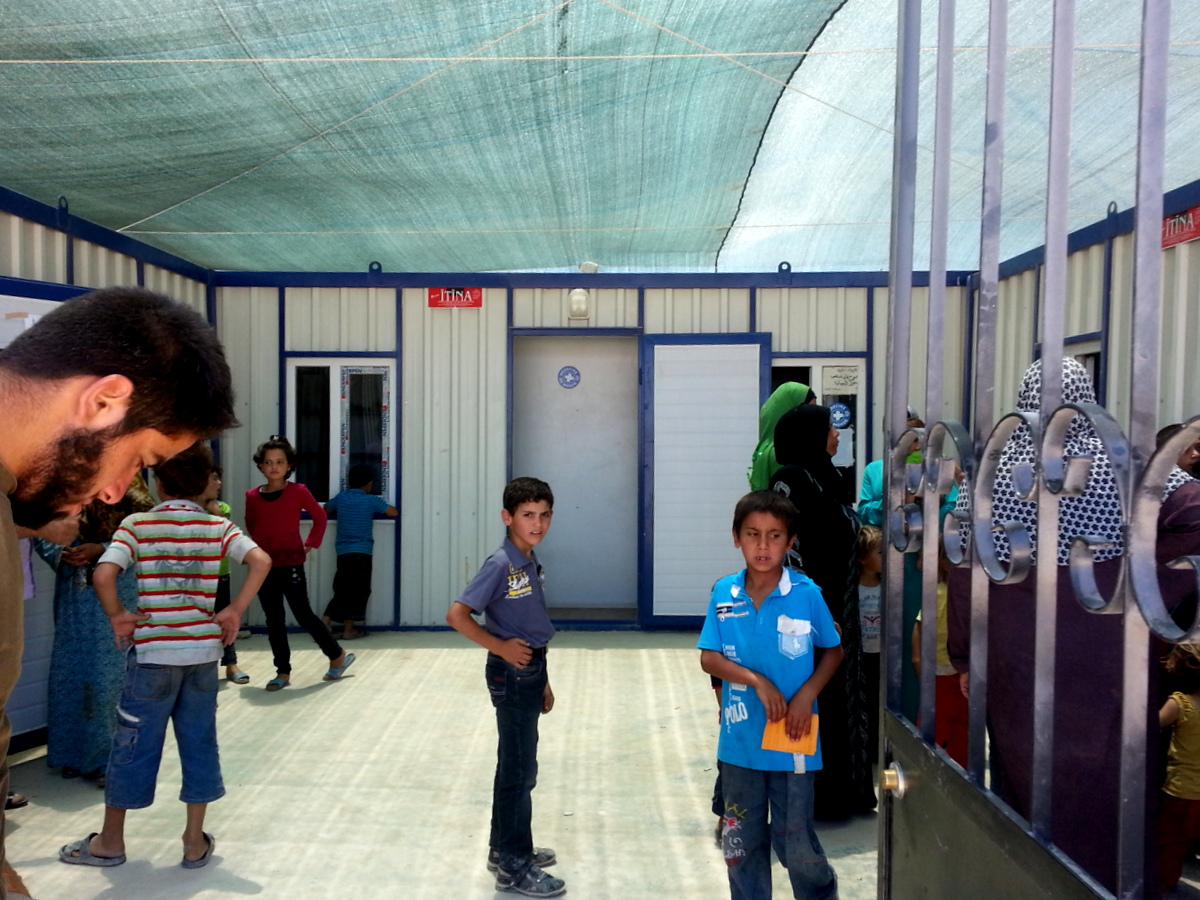Mareeam: Syrian, pharmacist, mother

Once a young pharmacist based in Damascus, Mareeam has been working with MdM teams in Northern Syria for more than a year now. Just like most of her Syrian colleagues, working for MdM is her way of fighting against the unprecedented crisis that is affecting her country hoping this can alleviate some of the suffering of her people. Her passion for her work as a pharmacist sadly echoes her anxiety faced with an uncertain future.
In August 2012, when her husband, a doctor in the army, decided to desert, Mareeam had no choice but to flee. As her family is from a village 15 km away from the Turkish-Syrian border, Mareeam fled there with her husband and their young daughter.
Two months after she arrived, Mareeam started working for MdM as a pharmacist and then as a pharmacy supervisor.
“MdM chose to focus its programmes in Syria on primary and reproductive health care. For me, there are huge needs in these sectors, which are not covered by other organisations. This choice makes sense for me, as a pharmacist but also as a woman and as a mother. I have a little girl and I can imagine what it is like to wake up in the middle of the night and realize that your child has a fever and to have no one to turn to, no place to go and no way to get the appropriate medicine.”
“There are countless issues in Syria right now and not all of them are linked to the bombings and violence. There are people with diabetes, people suffering from chronic diseases who cannot be cared for.”
Mareeam underlines the evolution from her work in a private pharmacy in Damascus to her role as a pharmacy supervisor for MdM.
“In Syria, before the war, patients could buy the medicines they wanted from the chemist’s. There was no control whatsoever. It was very frustrating for me, as a pharmacist, because if I refused to sell a drug deemed dangerous for a patient, I knew he would get it from the next chemist’s. The problem with this practice is that resistance to some antibiotics has got stronger and stronger. That’s why, in Syria, we have treatments that don’t exist anywhere else. In the long run, it could mean that some illnesses may become incurable.”
“In MdM, we work a lot with doctors and think thoroughly about each medicine we use in our centres. We try to raise awareness among patients. But it’s really difficult: people are used to it, it’s their way of thinking. Doctors experience a very strong pressure from patients who think they know which medicine is best for them. Through MdM, we can try to change things a bit.”
Mareeam also talks about the projects and relatives she left behind in Damascus.
“You know, three years ago, we would never have thought that all of this was going to happen. A few days before my husband decided to leave the army, we had a six-month project to buy a new house. We were talking about a new bed for our daughter. We never bought it.”
“Part of my family still lives in my village, which can be considered as safe. But their living conditions are inhumane: no electricity, no running water, and impossible communications. In the camps, it’s the same.”
Mareeam describes the instability of her exile and her fear of being pushed again on the roads of wander.
“It’s been two years I don’t really have a house and my clothes are in a suitcase. We could be forced to leave from here tomorrow.”
Day after day, the future becomes more difficult to imagine.
“I feel I’m stuck here. I have no option but to wait. My husband works in Aleppo, he leaves for two or three weeks then comes back here for a few days. When he leaves, I never know if he will be coming back, if I will see him alive again. I’ve stopped seeing the future, I see today, I see until the end of the week, no more… Syria will need ten years to recover from this war, if it ever recovers. And I don’t know if the Syrian people will be able to live together again. I don’t know if I will be able to accept the people who sided with the regime and I don’t know if these people will be able to accept me.”